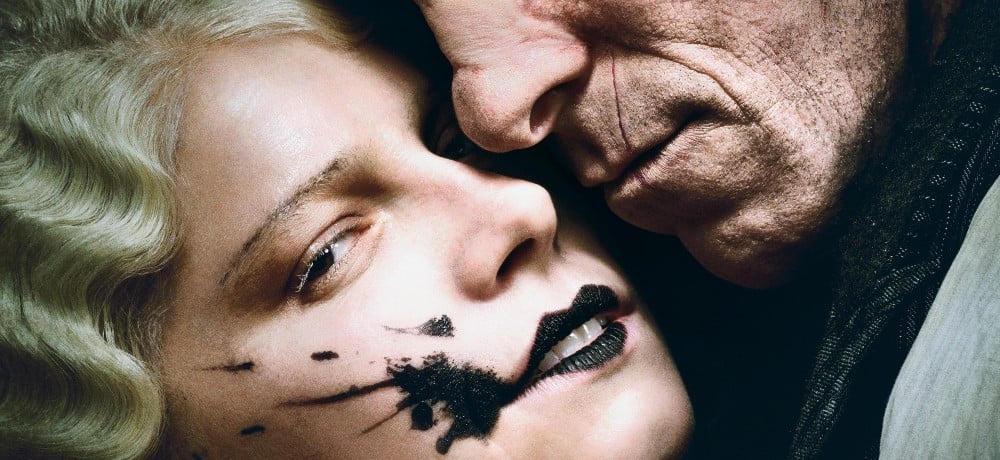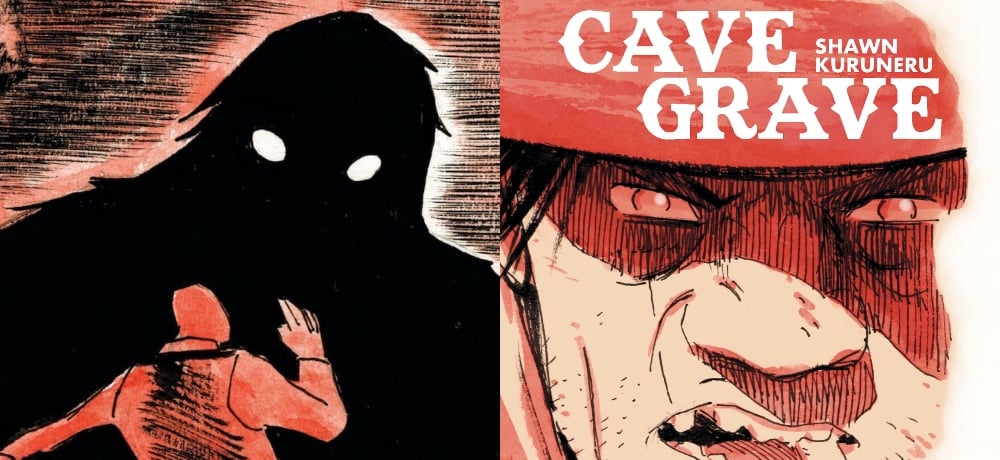





Ready to slash its way through the holiday season is director Sophia Takal’s Black Christmas remake, which hits theaters this Friday. At the recent press day for the film, Daily Dead sat down for a candid chat with one of Black Christmas’ co-writers, April Wolfe, who discussed the approach she and Takal had with their new story, the remake’s PG-13 rating and why it’s a good thing, incorporating some OG Black Christmas Easter Eggs here, and so much more.
Starring Imogen Poots, Aleyse Shannon, Lily Donoghue, Brittany O’Grady, Caleb Eberhardt, and Cary Elwes, look for the new Black Christmas in theaters everywhere this weekend.
Can you talk about what it was about the story of Black Christmas that felt right to revisit? Was there something about this time, in particular, where everything felt right to do a remake?
April Wolfe: So, the thing is that Blumhouse had the idea to remake this, right? Because they were like, "Okay, we're negotiating to the rights." And then they asked Sophia to direct it and write it. She's the one who brought me on to co-write. And what we found really quickly was that it's an opportunity to write Black Christmas, and that's amazing, and you're not going to say no to that. But also, the original was so topical, and so of its moment that it obviously could be ready for release right now. It’s still relevant.
But it's also, I would say, despite us horror fans loving it, it's slightly more obscure, because mainstream audiences aren't necessarily aware of it. So, the idea with this is like, "Well, what if you could get all of those ideas, all of these really cool things that you're doing, and put it into a mainstream package and let people see it and grapple with these things?" And, of course, then they get to find the old one, too. There are going to be a lot of people who've never even heard of the original, so this is almost sneaky marketing for the 1974 film.
But there's obviously so much that you can talk about what’s happening right now. The same thing with the ’70s, if you were a young person and you were alive, you were political. And it's the same right now. If you're a young person and alive, you're political, because your whole lives are politicized. And I think that, right now, embracing that and being like, "Well, how can we make this terrifying and fun?" was our guiding principle.
Obviously, there are some nods to the original Black Christmas in this, but it also is very much its own thing. Was that a delicate balance to strike with this?
April Wolfe: Well, I think that one of the things that we allowed ourselves to do is not get hampered by the original, because if the story was going in a direction, then we had to follow the story. We couldn't try to retrofit it to something that already existed. And it just turned out that the way that we saw these women, and saw their issues in their interplay and their dynamics, it just went in a different place, and it felt freeing to not think about that. In the same respect, I love the original so much that why would I want to play around with it?
So, there are a bunch of overt things in there that we've taken from it, and then also more subversive things that are our little Easter eggs that you'll find throughout. Also, definitely playing with the weapons of how the women in the original were killed, and how they can be repurposed and retooled in the present day, is something that was definitely on our brains when you're devising kills and action sequences.
Horror is about subverting expectations at this point, because we've had a hundred and how many years of cinematic horror. And so, trying to do something new, you're always, always building on something else. One of the things that drives me nuts is when people talk about remakes for horror films, because nearly every horror film is a remake at this point. Whether or not it's in name, in actuality, or whether they're just remaking something like their idea, you know? It's just we're all remaking the same thing, so how do you go about making it different, and make it distinguishable.
Going into this, did you guys know that you were going to be aiming for a PG-13 horror? Or did that sort of just come about because of the necessity of a story like this for younger audiences? It seems like there are a lot of fans who turn their nose up at PG-13 horror, but some of my favorite horror movies end up being PG-13 horror.
April Wolfe: Actually, the thing that was a sticking point for Sophia was the fact that there are obviously some overt ideas about date rape in this movie. And there is an old text that has been going around the studios, and it has the language that you can't use in PG-13 movies. It has not been updated. People just use it as a guide, but one of the words that you can't use is rape. And so for us, we were like, we're going to get an R rating because she's saying the word rape. So, we put some f--ks in there.
And it turns out that the MPAA was actually totally fine with us using the word rape, and then talking about date rape, too. But it's so meaningful to us that 13-year-olds can go and see this movie that is talking about date rape, because it's something that these kids are going to have to deal with pretty soon, unfortunately, in many cases. So, Sophia and I, we were psyched about the PG-13 rating. When the word got around, we all sent texts to each other, and it was just like, "Oh, this is really great. You know, more people get to see the movie and young girls, they get to see it, and they get to have these really complex and necessary discussions because of it.”
I'd love if you could talk a little bit about the back and forth with Sophia on this. And did you two, when you were working on this story, realize that potentially this film could become a lightning rod in so many ways?
April Wolfe: Hilariously, we didn't think about it being a lightning rod until the script was done, because we were so in our own bubble. The way that Sophia and I talk about this world and about feminism is really direct, because that's just how we are. I'm very open about everything, and she is, too. So, we actually didn't know it was going to be a lightning rod, because we were like, "Yeah, we're just making the story that we really like." And then after we read it, you know, and men were like, "Whoa!" And we were like, "Whoa?" We were like, "Oh!" Like, it really did not even connect with us until we were like, "Oh, should we ask someone for like anti-doxx protection?" I don't think we were a good gauge of how feminist we were because in my head, I'm just like, "Oh, we could've gone so much further," you know?
The process, though, the back and forth with us, because we are of the same mind, it just felt like the story had to go in certain directions that felt really necessary. She and I talked a lot about the Brett Kavanaugh hearings, and how that felt really demoralizing for a good like six, seven months before we started. I was just really affected by that. And then, also by mass shooters targeting their teen girlfriends, and this feeling lately, like someone's on your fu--ing neck all the fu--ing time. So, the way that we went about it was really natural, despite the fact that we have different styles and writing tones.
But the thing is, we also had a really short amount of time to develop and write this story. So that meant that within two months, we didn't really have time to question ourselves or to waste any time. So, if something wasn't working, then it wasn't working. And we were both experienced enough to know when something was just not quite right. And her being the director, she has the ability to be like, "Well, I like this, but I can't direct it. So, I would be like, "Oh! Okay, great. Here's something else. Here's a different option." It was so cool writing with someone who was actually going to direct it, because you could have more of a hand in everything.
There are some elements to this story that take things in a very different direction than the original. I won’t say anything more than that, but you mentioned subverting expectations. Was this your way of conscientiously subverting any expectations the audience might have had then?
April Wolfe: Something that was really necessary for us was taking a little bit of reality away from the story, where we’re taking the carpet out from under your feet, but also taking away reality so that you can digest it. Like the dialogue between the women is realistic. And, in a way, we wanted people to feel natural and grounded as this other thing is happening. In the time that we were making it, things just felt really depressing. And it felt like we couldn't make a slasher in the typical way because it would make us feel bad. It would make me feel sad. And I'm a person who fu--ing loves slashers. But then I sat down to write one in this time period, and I'm like, "Oh, f--k!" Like, my heart hurt.
So, you have to have something is what I felt, going in, that there should be some kind of joy to this experience. Sophia and I constantly talked about what we wanted to have people come away from the theater with. How do we want their faces to look when they leave the theater? We hope that they're smiling and energized, but also conflicted. That's something that I really appreciated about what we were able to do with our Black Christmas.